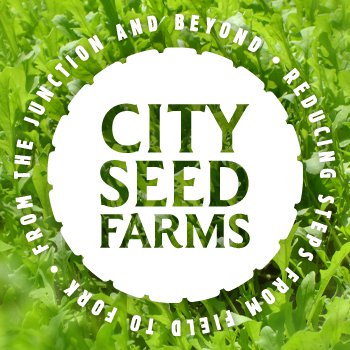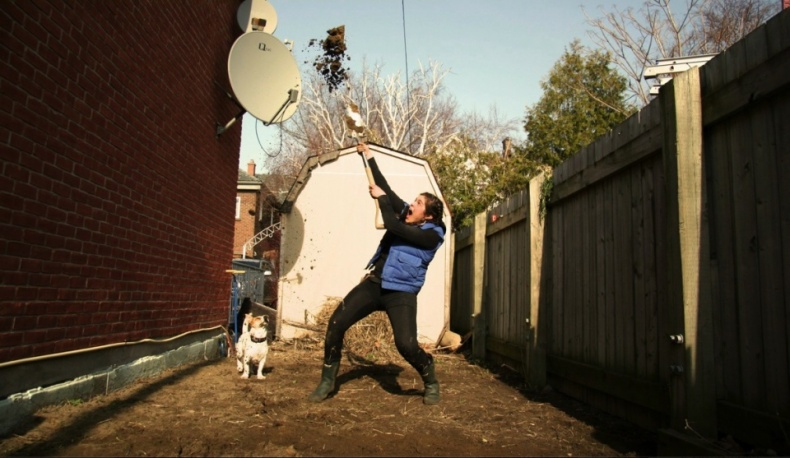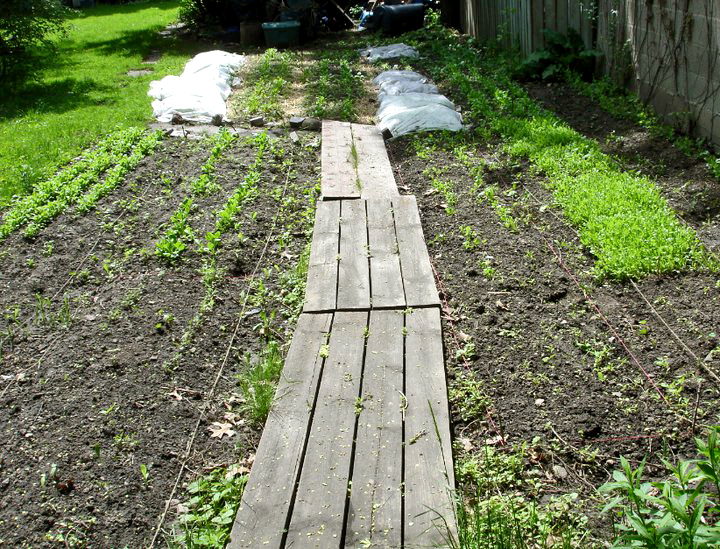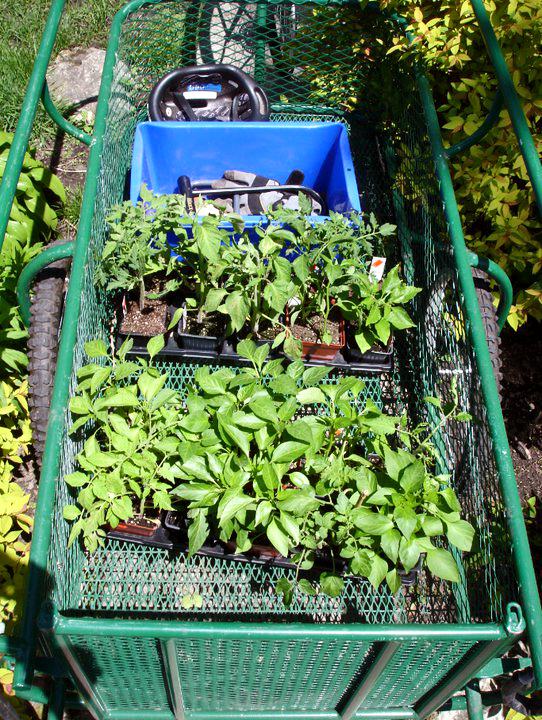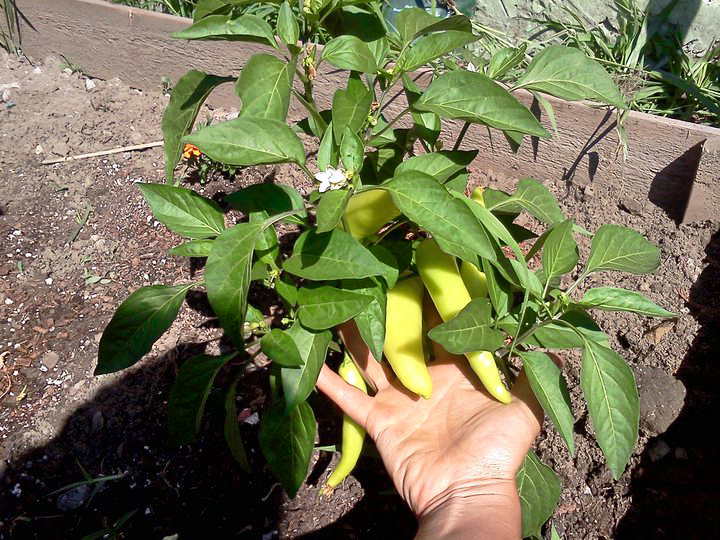
City Seed Farms logo
Urban farming is enjoying increasing popularity among Americans and it seems that this trend is ready to sweep across Canada as well. Cities such as New York, Chicago, and Seattle have already discovered the benefits of small-scale food production. Actually, the idea of urban farming is not so much a new trend; it has been around for centuries. Fortunately, now it is making its comeback. The simple fact is that urban farms can pop up just about anywhere: you can grow your own food in your backyard, on your balcony, on the deck, with a chicken coop, or with a beehive. If you think it's too difficult, City Seed Farms can help you. We talked with Erica Lemieux, the founder and owner of the first bicycle-powered backyard farming business in Toronto, to find out more about this organization.

Erica Lemieux, the founder of City Seed Farms
How Does It Work?
City Seed Farms is a pedal-powered urban farming business in The Junction, Toronto, currently selling at two farmers markets in the west end, Sorauren and Junction. Its mission is not only the production of the freshest, healthiest, and best tasting sustainable food but also fostering social and environmental change through the production of local food and both teaching and inspiring people to grow their own. People are encouraged to donate their backyards to City Seed Farms, for which they get rewards in the form of organic, high-quality produce throughout the growing season. However, tangible rewards are not the only benefit of participation in the program: urban farming will also add beauty to your landscape. Just imagine all those bright colours of beans, broccoli, strawberries, carrots, celery, etc. It's a beautiful idea, isn't it?

City Seed Farms
The concept of City Seed Farms is very simple: people who do not have time to garden or simply do not have a green thumb willingly hand over their land to City Seed Farms and in exchange for the use of their space they get a weekly basket of veggies. The rest of the produce is sold to markets or restaurants. However, the fact that people grow only spinach and beets in their backyards does not mean that that's all they get. Everyone gets a little bit of everything that is grown in all the participating backyards.
It's necessary to mention that there's no money exchanged between City Seed Farms and landowners. Basically, the owners don't have to lift a finger; after they sign the landowner agreement, City Seed Farms does everything else. They water, they weed, they plant, they bring compost and soil amendments — they do literally everything that is needed to grow organic food.
Erica's Motivation

City Seed Farms
The food that we buy today is like a part of a world-wide market. You don't really know where it comes from or what it contains. And that is where urban farms can help. "Once you put a bit of your time to growing your own food, you know that what you get is high-quality, fresh, and nutritious food. Moreover, if you have a balcony or a sunny backyard, you can have a lot of fun growing vegetables. And, of course, it can save you money," says Erica. Urban farms are starting to pop up all over North America and Toronto has a great potential for backyard farming, too. "I know that it's a dirty job, but someone has to do it," she adds.
Criteria
If you want to grow herbs and have a little bit of lettuce, your balcony or sunny terrace might be sufficient for a few vegetable beds. However, if you want to get involved in City Seed Farms, places 25 by 25 (and larger) are a necessity. Another requirement is adequate sun exposure (6+ hours of sunlight a day) and access to water, and the place must be accessible for bike trailers because they carry all the necessary hand tools.

City Seed Farms
For now, City Seed Farms is only available in Toronto's West End (in the High Park and Junction Triangle neighbourhoods), but it is quickly expanding into other neighbourhoods. "The amount of produce has been growing pretty amazing during the last five years and the trend, it seems, is going to continue as people get more creative with their rooftops, gardens, and backyards," Erica admits. Moreover, as oil prices fluctuate, growing your own food and not having to be dependent on imports might be a key to saving money.
If you are interested in City Seed Farms, you can talk to them at Sorauren Farmer's Market from 3:00 to 7:00 P.M. on Mondays, send them an email at , contact them through their Facebook or Twitter profiles, or have a look at City Seed Farm's website.


